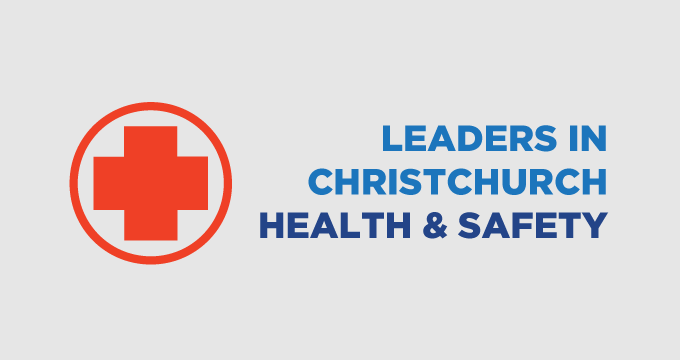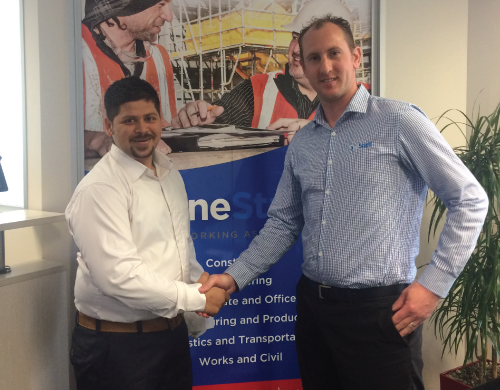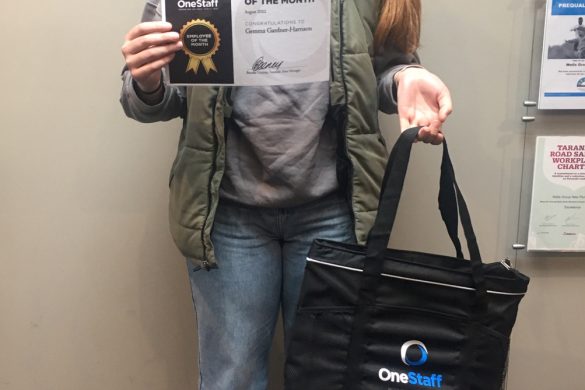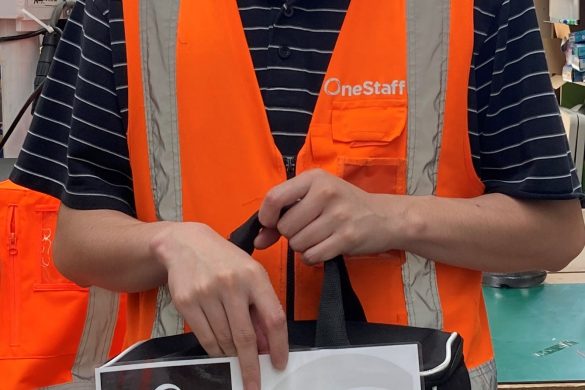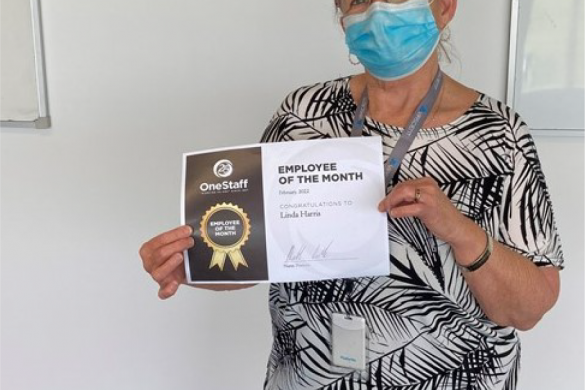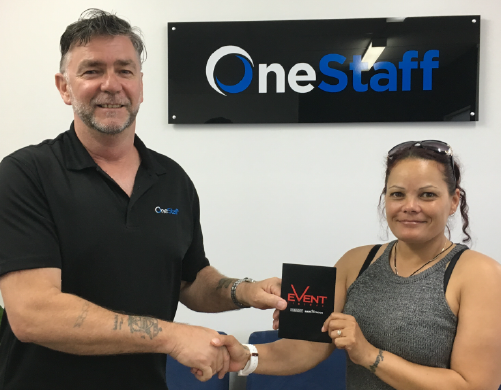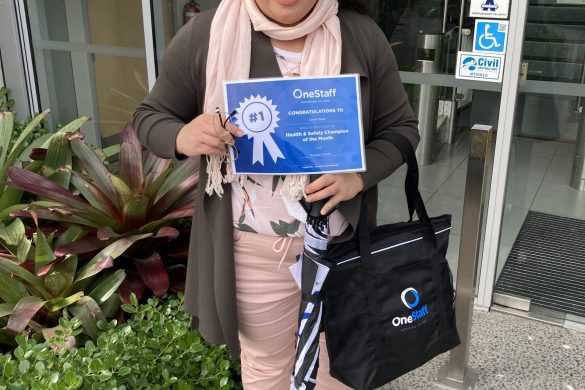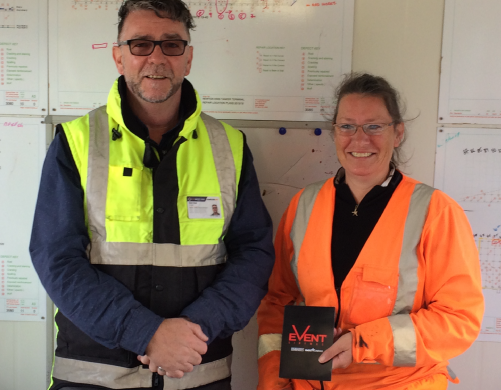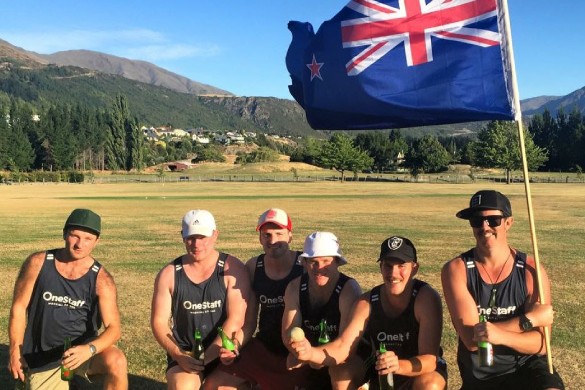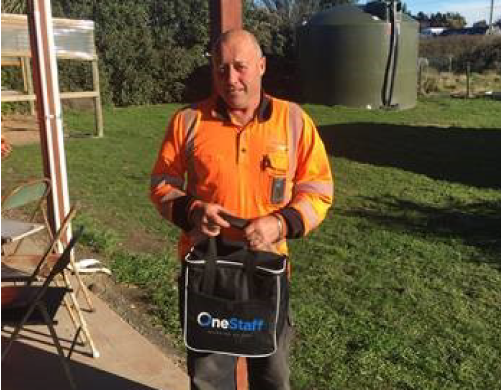OneStaff’s Christchurch Health and Safety Manager Justine Ward recently spoke to Kelly Andrews of Employment Today about OneStaff’s approach to health and safety in the Christchurch region. This article was originally published in Employment Today, but in case you missed it, we’ve re-published it here. (Also view-able as a PDF here.)
Taking a proactive and collaborative approach to health and safety is paying off for the Christchurch branch of labour hire company OneStaff.
When many of your employees are working in environments where site hazards include falls from heights, excavations, confined spaces and dangerous chemicals, safety has to be paramount.
OneStaff, which has 12 branches nationwide, is one of the largest providers of industrial labour in the Canterbury region, and has played a pivotal role in supplying workers for the post-earthquake rebuild. Its Christchurch health and safety manager Justine Ward, along with a team of frontline staff, oversees hundreds of contract and temporary employees working on sites around the city and the wider region. She has 12 years experience in workplace health and safety, including eight years as a volunteer ambulance officer and a previous role as a safety advisor and trainer for Site Safe New Zealand. Ward says new legislation, the Health and Safety at Work Act which comes into force on April 4, reinforces that health and safety of workers is a shared responsibility between labour hire companies and their employer clients.
The Act follows the recommendations of an Independent Taskforce on Workplace Health and Safety, with a goal of cutting New Zealand’s workplace injury and death toll by 25 per cent by 2020. It spells out that where there are multiple employers, such as a labour hire company and a host company, under the new act they are both classed as a “person conducting a business or undertaking” (PCBU) and must do everything they can to keep workers safe.
Ward says the Act broadens the scope of duty of care for employees that are not in the traditional employer-employee relationship. “All duty holders have the responsibility to consult, co-operate and co-ordinate with each other.” She believes this is particularly important currently with the growing number of labour hire employees around the country. This is especially the case in Canterbury where many workers are arriving from overseas to work on the rebuild in potentially high risk industries.
Even before the legislation was drawn up, OneStaff had been taking steps towards increasing communication with its clients, who are mainly medium to large employers in the construction, infrastructure, manufacturing, engineering and commercial industries. OneStaff was launched last October, uniting well-established recruitment firms Coverstaff and Onsite Recruitment into a new, nationwide brand.
The company has introduced more worksite observations and improved its information technology systems to measure its health and safety performance. Ward’s role as a health and safety manager was created three years ago to provide more support to frontline business development managers who carry out worksite checks, fill out observation checklists and monitor safety. If there are issues they are unsure about they can come to her, and she is also regularly out visiting worksites herself and meeting with key agencies such as Site Safe, WorkSafe New Zealand and the Accident Compensation Corporation (ACC).
Two years ago, OneStaff introduced a more robust injury management and rehabilitation process to ensure injured staff receive more support as they get back to fitness. The company partnered with Occupational Health Canterbury, an organisation that provides physiotherapy and occupational medical services, to help with the initiative. Under the scheme OneStaff covers the cost of an injured worker having physio appointments to assess the injury and make sure the problem is fixed properly. The objective is for their return to work to be planned, rather than rushing them back too early and aggravating the injury. Following the success of this scheme, the labour hire company joined the ACC Partnership Programme in October 2014, which means it takes direct responsibility for managing workplace injuries and providing entitlements instead of the corporation. OneStaff recently achieved tertiary accreditation level.
With an influx of people coming into Christchurch to work on rebuild projects, Ward says local recruitment companies recognised they would need to collaborate to maintain high safety standards and protect staff, who are often transient. With that goal in mind, OneStaff was one of the founding members of the Canterbury Labour Hire Safety Forum established in 2013. “As a major contributor of labour to the Canterbury Construction Industry the forum has focused on increasing engagement with temporary employees and increasing knowledge of health and safety with their frontline members,” she says. The forum organises regular talks by guest speakers on various health and safety topics and it regularly has an audience of about 150 temporary workers from across the labour hire companies that are part of the forum. Members include; Enterprise Recruitment, Randstad, Select Recruitment, Adecco, and Tradestaff. In November the forum was recognised at the 2015 Seek Annual Recruitment Awards, winning gongs for most innovative agency of the year and recruitment leader of the year.
The efforts made by OneStaff towards improving health and safety seem to be achieving results, Ward says. “ACC figures show an increase in labour hire injury claims generally, however OneStaff’s frequency rates for injuries per hours worked have been trending down over the past two years. Increased co-operation and communication will continue to drive this rate lower.”
Ward believes opening dialogue about health and safety and making it a clear priority is a vital first step for a business. “The front line team used to stay away from conversations about health and safety because it’s a bit daunting but now they seem to engage in those kinds of conversations a lot more.” Her advice to other labour hire and recruitment companies is to work on their lines of communication with clients and staff. “It’s key that they’re communicating with all the different parties, the employees and the clients, and making sure the flow of information is there. They also need to acknowledge risk areas and address them.”
Click here to see our ‘New Zealand Health & Safety By the Numbers’ infographic.
